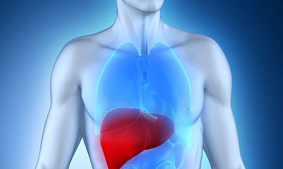 Hepatology is a branch of medicine concerned with the study, prevention, diagnosis and management of diseases that affect the liver, gallbladder, biliary tree and pancreas. The term hepatology is derived from the Greek words "hepatikos" and "logia," which mean liver and study, respectively. Hepatitis affects millions of individuals globally and is associated with several poor outcomes including liver transplant and liver cancer. In particular, hepatitis B and hepatitis C are major causes of liver cancer, while alcohol abuse has been linked to conditions such as cirrhosis and other serious complications. The conditions hepatologists deal with most frequently are viral hepatitis and alcohol-related liver disease.Hepatology grew out of gastroenterology and so became a subfield of it, although today it appears to be emerging as a freestanding medical specialty.
Hepatology is a branch of medicine concerned with the study, prevention, diagnosis and management of diseases that affect the liver, gallbladder, biliary tree and pancreas. The term hepatology is derived from the Greek words "hepatikos" and "logia," which mean liver and study, respectively. Hepatitis affects millions of individuals globally and is associated with several poor outcomes including liver transplant and liver cancer. In particular, hepatitis B and hepatitis C are major causes of liver cancer, while alcohol abuse has been linked to conditions such as cirrhosis and other serious complications. The conditions hepatologists deal with most frequently are viral hepatitis and alcohol-related liver disease.Hepatology grew out of gastroenterology and so became a subfield of it, although today it appears to be emerging as a freestanding medical specialty.
Hepatology: The field of liver disease. The liver is the body's largest organ and hepatology is a large field. It includes, but is not limited to, the study of acute and chronic hepatitis, viral hepatitis, cirrhosis.genetic and metabolic liver diseases and their complications, live cancer, liver transplantation, drug metabolism (which depends largely upon the liver), and immunology as it pertains to the liver.
A liver transplant is an operation to remove a diseased or damaged liver and replace it with a healthy one.A liver transplant is an operation that replaces a patient's diseased liver with a whole or partial healthy liver from another person. This article explains the current indications for liver transplantation, types of donor livers, the operation itself, and the immunosuppression that is required after transplantation.
A liver transplant is an operation that replaces a patient's diseased liver with a whole or partial healthy liver from another person. This article explains the current indications for liver transplantation, types of donor livers, the operation itself, and the immunosuppression that is required after transplantation.
Liver transplantation or hepatic transplantation is the replacement of a diseased liver with some or all of a healthy liver from another person .The most commonly used technique is orthotropic transplantation, in which the native liver is removed and replaced by the donor organ in the same anatomic location as the original liver. Liver transplantation is a viable treatment option for end-stage liver disease and acute liver failure.
A liver transplant is a surgical procedure to remove a diseased liver and replace it with a healthy liver from a donor. Most liver transplant operations use livers from deceased donors, though a liver may also come from a living donor.The number of people waiting for new livers is much larger than the number of available livers, so liver transplant is reserved for people who are critically ill. Some people receive a liver transplant right away, while others spend many months waiting for a liver transplant.